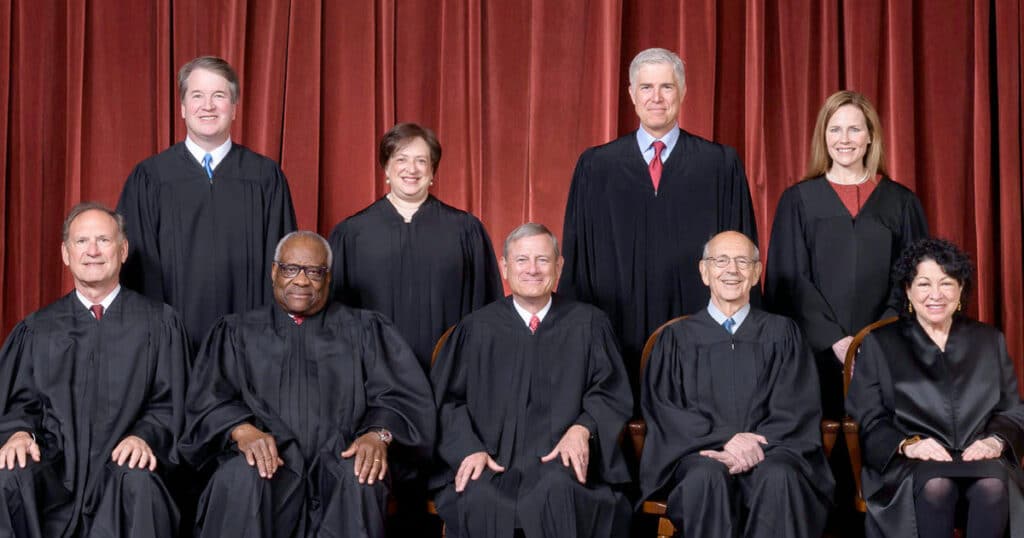Blog
The Attack on Roe is Just the Start, and Public Schools May Be Next

The leaked draft Supreme Court ruling that would overturn Roe v. Wade is an attack on reproductive rights, health care, and the progress made by increasingly multiracial and intersectional feminist movements over the past several decades. As Schott President & CEO Dr. John H. Jackson wrote, the court “has abandoned decades of constitutional protections. It’s a brazen attack on reproductive rights, made even more despicable by their use of racist myths like ‘Black genocide’ to justify it.”
Even more sweeping than this draft opinion is the court’s aggressive new posture: the far right is taking this development as a green light to roll back constitutional rights across the spectrum, including our public schools.
But amid the very valid shock, outrage, and concern, we shouldn’t lose sight of the lessons of history: that popular movements have overcome incredible challenges — far more imposing than Supreme Court justices — to win a better world for generations to come. Court rulings may shift the terrain of struggle, but we must always keep our eyes on the prize.
Public schools are next for the far right
Soon after the leaked Supreme Court opinion, Texas governor Greg Abbott took aim at another long-settled precedent: the obligation for states to educate undocumented immigrant children. During a radio interview, he said:
“Texas already long ago sued the federal government about having to incur the costs of the education program, in a case called Plyler v. Doe. And the Supreme Court ruled against us on the issue about denying, or let’s say Texas having to bear that burden. I think we will resurrect that case and challenge this issue again, because the expenses are extraordinary and the times are different than when Plyler v. Doe was issued many decades ago.”
In the 1982 case Plyler v. Doe, a Texas law allowed the state to withhold state funds from school districts that would go to educating the undocumented children. The Supreme Court ruled that this law violated the Fourteenth Amendment. (The Fourteenth Amendment, notably, was also at the heart of the Roe v. Wade ruling.)
The current Supreme Court also looks poised to roll back the separation of church and state in public schools. The court recently heard oral arguments in the Kennedy v. Bremerton School District, which revolves around a public school football coach leading prayer sessions with his players. Longstanding precedent would mark this as a violation of the U.S. Constitution’s Establishment Clause — public schools should not pressure students to participate in a religious activity — but as a Vox article reports, “A majority of the justices seemed eager to shrink this constitutional provision significantly, though it is unclear just how much they will reduce it.”
The case Carson v. Makin, currently being considered by the court, threatens to remove states’ ability to keep public education voucher dollars from supporting religious private schools.
Even more concerning is the fate of Brown v. Board of Education, the landmark school desegregation ruling that, up until recently, was held sacrosanct by the federal courts. Some are eager to change that. The former editor of the conservative National Review argued last week for the court to overturn Brown, and a 2019 Mother Jones article noted that many Trump appointees to the federal bench refused to state during hearings whether Brown was correctly decided.
What’s past is prologue — if we allow it
Historically speaking, the new, reactionary bloc on the Supreme Court is not an aberration but a return to form. From its founding, the court has overwhelmingly sided with the most powerful in society: for every Brown v. Board, there are dozens of Plessy v. Fergusons.
Fortunately, history also shows that movements for racial and educational justice, for reproductive rights, for LGBTQ and women’s liberation, and for labor rights don’t need to change the courts before they can start to change the world. What was Stonewall, or the Jane Collective, if not a direct challenge to injustices in the law and the judiciary that upheld them?
The cause of justice, in our schools and our communities, is a cause that more often than not runs afoul of the courts, until popular movements have raised the stakes and shifted society so profoundly that lawmakers and judges alike are forced to catch up.
It is now, as ever, up to all of us to build power in our neighborhoods and communities, and it’s up to philanthropy to support the grassroots organizations that use that power to build the loving systems our children and families deserve.


